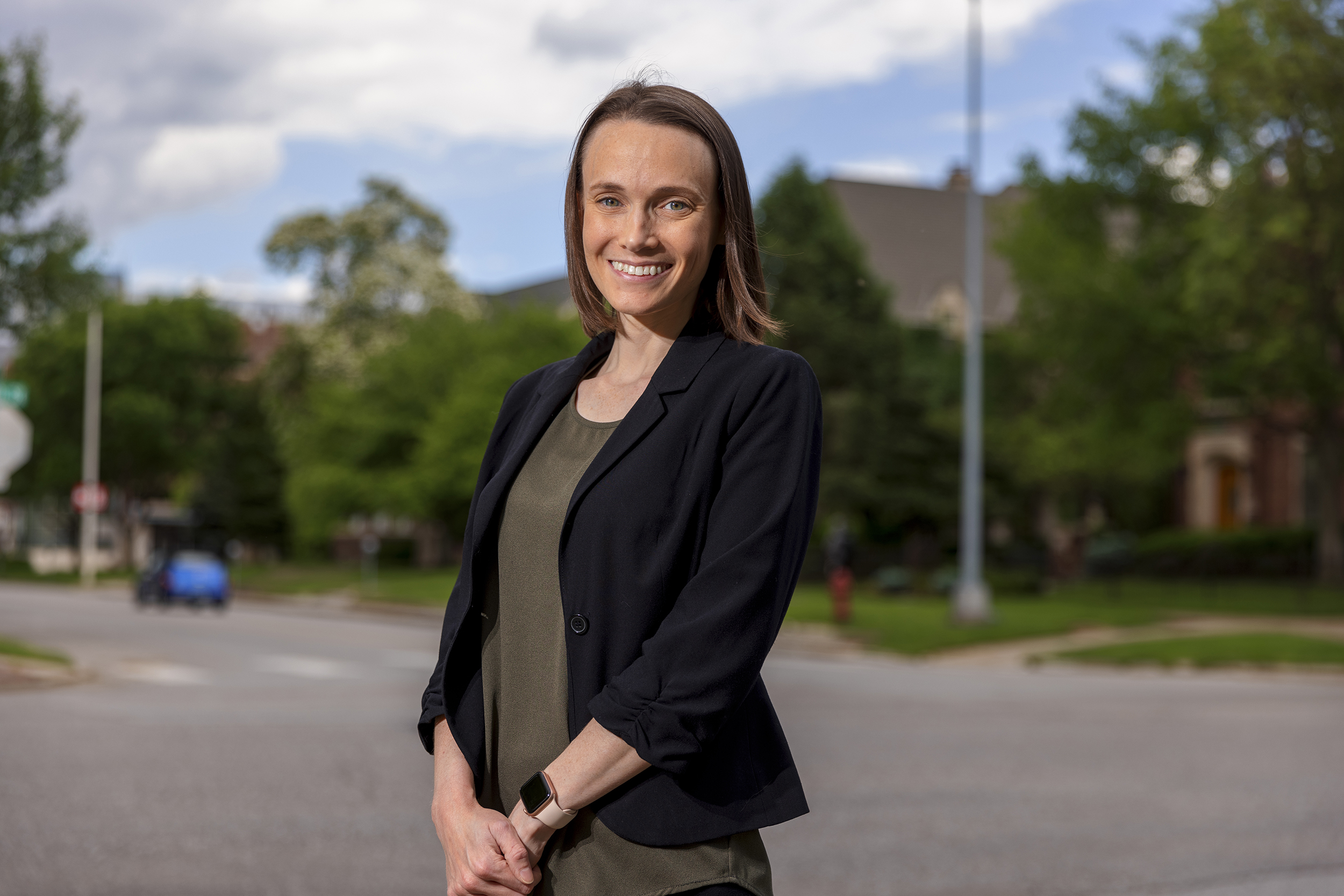
Waves of social change in recent decades have transformed the ability of sexual assault survivors to speak out and receive support and empathy from friends, family and other social networks.
But this positive change has brought to light a related yet largely unaddressed problem that is particularly acute among young adults in college: People often don’t know how best to help a friend who confides in them about sexual assault, so they resort to well-intentioned acts of support. Among college students, this can involve drinking together, which may unintentionally prolong distress after trauma.
University of Nebraska–Lincoln researcher Anna Jaffe aims to help reverse this trend by developing tools and resources to help women navigating these challenges. Jaffe is collaborating with Husker sorority members to develop a web-based, social network-driven tool that will help these women support survivors in the long term — without alcohol.
“We know from prior research that sexual assault survivors often tell someone about their experience,” said Jaffe, assistant professor of psychology. “But the support often takes place in social networks where heavy drinking is common. With this project, we’ll try to promote support that doesn’t involve heavy drinking.”
The National Institutes of Health is supporting her work with a five-year, nearly $900,000 Mentored Clinical Scientist Research Career Development Award, a grant designed to provide protected time, training and mentorship for scientists focused in biomedical, behavioral or clinical research. Nebraska’s Sarah Gervais and Bilal Khan, along with colleagues from the University of Washington, Georgia State University and Brown University, are partnering with Jaffe on the project.
To develop the online tool, Jaffe will collaborate with sorority members, the Office of Fraternity and Sorority Life, and the Office of Student Affairs to gather information about what content would be most beneficial. Ultimately, she hopes to produce a 30-minute online resource that features graphics and information tailored to specific sororities.
Jaffe will pilot her approach in partnership with eight Nebraska sororities, testing its usability and helpfulness on a small scale. If successful, she hopes to eventually launch a larger trial that spans multiple universities. Down the road, the program’s scope may broaden beyond sororities to other types of organizations and networks. The project is innovative for its focus on helping peers offer healthy types of support to sexual assault survivors, promoting their longer-term well-being, Jaffe said. While some work has focused on how to respond when someone discloses a sexual assault, and on mitigating alcohol use in other contexts, Jaffe is one of the first to explore how educating peers on the long-term support of sexual assault survivors may reduce alcohol use and alleviate survivors’ distress.
The program may also serve as a model for how to leverage a social network to change collective behavior.
“The social network aspect of this project will be an innovative way to promote support for survivors,” Jaffe said. “Within sororities, we hope to be able to see how changes in individuals’ behavior trickles down through that network.”
With the project, Jaffe hopes to launch a research trajectory focused on leveraging technology and social networks to spark larger-scale change in alcohol use and sexual assault recovery. She’s optimistic that she can harness today’s energy around listening to and believing survivors to drive this goal.
“We’ve seen changes in the culture and conversation about sexual experiences, and we’re seeing that people are wanting to support survivors but sometimes don’t know how best to do so,” Jaffe said. “My hope is that this project could help meet some of those needs.”








